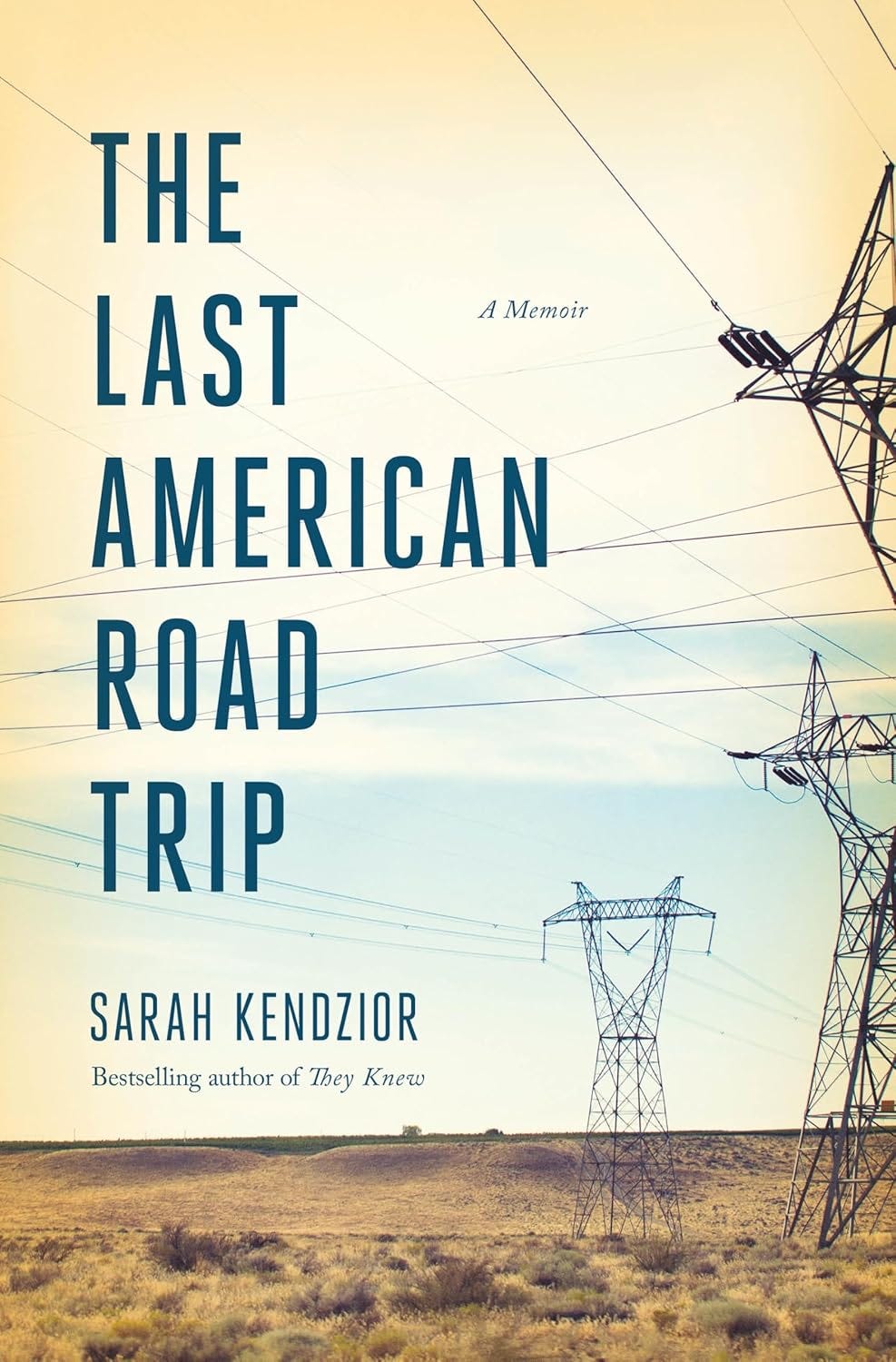Sometimes, when the world around us is just too much, we need to get out of town. St. Louis writer Sarah Kendzior, bestselling author of They Knew, Hiding in Plain Sight, and The View from Flyover Country, has written a travelogue of her family journeys. The Last American Road Trip is by turns somber, outraged, and delightful. A book for travels cosmic, personal, political, and subterranean.
Some observe that our biology contains our biography. That what has happened to us in our lives is recorded in our bodies. One gets the same sense about America: that our geography contains our stories, for good and ill.
I don’t want my children to chase American illusions marketed as American dreams, but I want them to understand why things went wrong. To appreciate every day miracles and not think them small. To have reverence for the good that endures and work to protect it. A republic, if you can keep it.
There are two ways to get to know somebody. Visit their home. Or travel with them. Kendzior shares vulnerable moments with her parents, her husband, and their kids, treating each with respect, affection, and a certain anticipatory grief. She speaks to her consternation about the current state of affairs in the US. Her orientation is decidedly on the Left; she is well able to speak hard truths about Democrats as well as Republicans.
She loves going where the stories are. She starts with Bloody Island, in the Mississippi, where politicians fought duels to settle their differences. They all go to Arkansas, where the Whitewater controversy took root – and where she and her daughter meet a ghost. And New Mexico. She loves New Mexico (who wouldn’t?). She has a love-hate relationship with her home state: “Since my children grew up in Missouri, Texas was their first encounter with state pride.” They visit the Cuyahoga River, which once burned. Death Valley, for a resurrection. Florida, in search of Mark Twain. Gary, Indiana, as a substitute for Uzbekistan.
Her favorite places are the dark, remote ones. The middle of nowhere is her happy place. “I have never entered a cave and not felt immediate psychic relief," she says. And, “It is not a coincidence that the Dark Sky Places where you can see the stars are the same places where your phones do not work.” It’s as if she has a persistent psychic migraine, and the quiet darkness offers refuge.
Her political and social observations come from a heart broken by empathy betrayed and justice frustrated. So her humor, and her palpable love for her family, serve as a kind of “spoonful of sugar." As do her many stories about her kids, their perspectives and adventures. She adores them. You will, too.
When we listen to someone’s cri du coeur, we don’t expect it to be entirely logical and chronological. If Sarah Kendzior's figures of speech are sometimes rather . . . Escheresque, never mind. Times and places of darkness are where mysticism and poetry are born. Going to the middle of nowhere isn’t only about escaping the busy, broken world. As the desert fathers knew, dark and quiet places aren’t necessarily comfort zones. Deserts, caves, national parks, small towns, the Milky Way, haunted hotels – we can come apart into deserted places, and rest a little. Observe our griefs. Or wrestle with our demons.





I stumbled on this review today -- thank you! I'm glad you liked it; it feels good to be understood. I appreciate the write-up!
Yes, fabulous, insightful, inspirational review - JUST like the book. And both are great fun